13 Promising Benefits Of Soaked Almonds For Skin, Hair, And Health
Use it to keep the heart healthy, fight skin issues and aging, or nourish your hair.
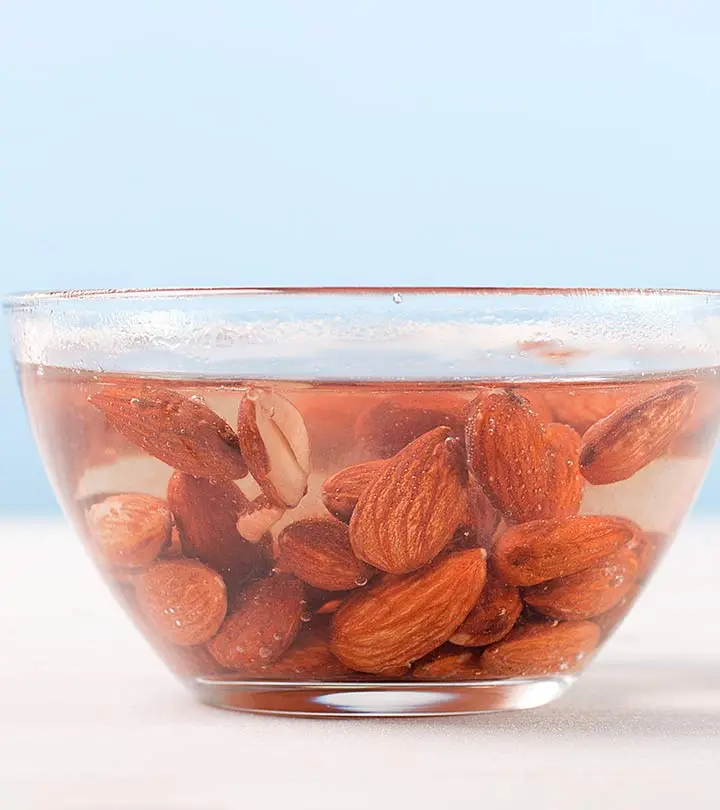
Image: Shutterstock
The benefits of eating soaked almonds are worth considering over raw almonds. Almonds (Prunus dulcis) are packed with nutrition, vitamins, mineral, antioxidants and have many health benefits.
You can consume raw and roasted almonds. However, most people prefer consuming soaked almonds over any other form. The health benefits of soaked almonds are numerous. They may help reduce cancer risk and improve digestion.
This article discusses the benefits of soaking almonds over raw ones, how they can benefit your health, hair, and skin, and the best way to store them.
Scroll down to learn more.
 Know Your Ingredient: Soaked Almond
Know Your Ingredient: Soaked AlmondWhat Is It?
Nutlike seed of the almond tree, turgid from being soaked in water overnight.
What Are Its Benefits?
It may improve digestion, brain function, heart health, blood sugar and energy levels, and help manage diabetes, cholesterol, and constipation.
Who Can Consume It?
Anyone except people with nut allergies.
How Often?
It can be consumed daily.
Caution
People with nut allergies may experience itching in the upper respiratory tract or swelling in the feet, ankles, or legs after consumption.
In This Article
Why Soaked Almonds Are Better Than Raw Almonds
Soaked almonds are better than raw almonds in texture, taste, and nutrient availability. Hydration softens the outer layer of the almonds, which leads to faster digestion of the nutrients. It also inhibits the two anti-nutrients – tannins and phytic acid – that are found in the brown covering of these nuts.
Peeling off the outer layer allows the almond to release all the nutrients. Raw almonds are crunchy and hard, with a bitter flavor due to the anti-nutrients. Soaked almonds are softer and tastier.
 Fun Fact
Fun FactSo, it’s no surprise that soaked almonds offer some health benefits that raw almonds don’t. Check them out below.
Key Takeaways
- Almonds offer numerous benefits for the skin, hair, and health with their antioxidant, vitamin, and mineral contents.
- Soaked almonds may help improve digestion and reduce cancer risk.
- Eating soaked almonds can promote hair growth with their biotin content and improve skin health.
- Soaked almonds may help during pregnancy with their folate content.
- Regular consumption of soaked almonds may promote heart health, boost the immune system, and improve brain function.
13 Health Benefits Of Soaked Almonds
Soaked almonds are great for your digestive system, brain, and other organs.
Here, we have put together some of the most important medicinal values of this ‘wonder food.’
1. Improve Digestive Health

Soaked almonds can make your food digestion smoother and faster by facilitating the entire digestive procedure. The external layer of the almond, which has a hard texture, makes it difficult to digest (1). However, soaking activates the nutrients in the almonds, makes them more digestible, and reduces their anti-nutrient levels (2). Soaked almonds also release lipase (a lipid-breaking enzyme) that works on the fat present in the food and aids digestion (3).
A study conducted at the University of California (Davis) found that soaking almonds at room temperature for 24 hours may enhance their nutrient bioavailability through the degradation of phytic acid (a nutrient inhibitor) (4).
2. Aid Weight Loss

Frequent intake of nuts like almonds boosts metabolism to aid weight loss and reduce the risk of obesity (5).
Regular consumption of soaked and peeled almonds in the morning as part of a low-calorie diet has several benefits such as a decrease in bad (LDL) cholesterol levels and weight loss (6), (7). Moreover, it is associated with reduction in waist circumference, fat mass, and water weight (7).
Eating nuts at moderate levels is also associated with energy expenditure in the body, promoting satiety, which leads to weight loss (8).
3. May Do Good During Pregnancy

Almonds are a rich source of folate (9). Folate supplementation aids labor and prevents neural tube and congenital heart defects in the baby (10). Soaking the almonds increases the bioavailability of this nutrient.
4. May Improve Brain Function
Almonds are said to possess L-carnitine, though there is no scientific evidence to prove the same. L-carnitine may help in the production and growth of new brain cells (11).
Almonds also contain phenylalanine, which can improve cognitive function and memory(9),(12).
These nuts are rich in vitamins E and B6, which are known to preserve memory, retard the cognitive decline associated with Alzheimer’s disease, and enhance the bioavailability of proteins to brain cells (13), (14).
Almonds also contain omega-6 and omega-3 fatty acids (9). Research says that these fatty acids may help in boosting brain development (15). A study conducted on rats found that almonds enhance the acetylcholine levels in the brain. This could enhance memory and delay the onset of age-associated cognitive dysfunction (16).
However, more research is required to study the effect of soaked almonds on brain function.
5. May Promote Heart Health

Almonds are good sources of plant protein, potassium, and magnesium. These nutrients are great for preventing cardiovascular diseases (6).
Soaked almonds also contain polyphenols and antioxidants that may prevent heart diseases (17), (18).
However, more research is required to establish a direct relationship between eating soaked almonds and preventing heart disease.
6. May Reduce Cholesterol Levels
Soaked almonds are loaded with monounsaturated fatty acids (MUFA), which lower the amount of low-density lipoprotein (LDL) or “bad” cholesterol in your bloodstream (6).
The vitamin E content of these nuts may help in fighting against LDL and raising the level of high-density lipoprotein (HDL) or “good” cholesterol in the body (9), (19).The minerals such as potassium and magnesium may help in regulating blood pressure levels (20).
Soaked almonds help reduce cholesterol and keep the heart healthy. This graph shows that daily consumption of soaked almonds before breakfast for 6 and 12 weeks showed reduction of cholesterol in the atherogenic index, which is composed of a ratio of triglycerides, low density lipoprotein cholesterol and high density lipoprotein cholesterol.

Effect Of Soaked Almonds On Atherogenic Index And Cholesterol
Source: https://www.mdpi.com/2072-6643/13/6/19687. May Boost Energy

Consumption of soaked almonds may help in enhancing your metabolism, thereby boosting energy levels. Almonds contain riboflavin and potassium that help in increasing energy metabolism (21), (22).
8. May Improve Blood Pressure Levels
The low sodium and high potassium content of almonds may help prevent your blood pressure from escalating (9), (23).
High blood pressure is one of the top reasons for stroke, heart attacks, and cardiac arrests. The magnesium in almonds may help lower the risk of artery congestion (24).
9. May Treat Diabetics
Soaked almonds help keep your blood sugar level under control.A study conducted on 20 Chinese people with type-2 diabetes showed that consumption of almonds increases the lipid profile and improves glycemic control(25).
10. May Treat Constipation
The insoluble fiber in soaked almonds may help in treating constipation. It regulates the bowel movements in the intestine, thereby reducing the symptoms of constipation (26).
11. May Fight Cancer
Almonds are said to contain phytic acid, which has been shown to exhibit antioxidant properties that may help prevent cancer (27). They are also rich in tannins (especially proanthocyanidins) that haveanticancer properties (28).
12. Benefits Of Soaked Almonds For Skin
The regular consumption and proper external application of soaked almonds may be good for your skin, though there is insufficient data available to prove this claim. However, anecdotal evidence suggests that soaked almonds may help promote skin health. Given below are some of their benefits:
- Aging can be prevented with soaked almonds. The vitamin E and other antioxidants present in these nuts can eliminate the harmful free radicals from your body (9), (29). As a result, the aging process gets delayed and your skin looks younger for longer.
- Soaked almond paste may help treat skin inflammation. The polyphenols found in the almond skin reduce the risk of inflammatory diseases (30). This could provide relief from the itching and irritation of rashes or chapped skin.
13. Benefits Of Soaked Almonds For Hair
Research on the benefits of almonds for hair is limited. However, listed below are the purported benefits of almonds for hair care:
- Soak a few almonds in water overnight, mash them the next morning and finally, prepare a hair mask by mixing a fair amount of olive oil with it. It may act as a natural conditioner. However, more research is required to prove this point. But, anecdotal evidence shows that soaked almonds paste may help improve hair health.
- Eating soaked almonds or using its paste on the scalp is said to nourish your hair and make it stronger. It is also claimed to repair severe hair damage, reduce frequent hair fall, and help in the growth of new hair follicles.
So, don’t sleep on soaked almonds anymore! Check out how you can soak almonds below.
How To Soak Almonds In Water
Soaking almonds is simple. Here’s a simple way to soak them overnight:
- Pour the almonds in a bowl.
- Add enough water to cover them completely.
- Let the bowl sit on your countertop overnight or for 8-12 hours.
- Drain out and rinse the almonds.
- If you want, you can remove the skins of the almonds for a smoother texture.
- Pat the almonds dry with a clean paper towel before eating them.
The soaked nuts can be eaten for breakfast or on an empty stomach for better absorption of nutrients.
 Quick Tip
Quick TipHere’s how you can store soaked almonds for quicker consumption.
How To Store Soaked Almonds
You may keep soaked almonds up to five days in the refrigerator in an airtight container. After that, you will observe a change in the color of these nuts. You can dry soaked almonds by roasting or dehydrating them before storing them.
To roast soaked almonds, pre-heat the oven to 79° C and roast them until they dried out. Dehydrate soaked almonds at 68° C temperature maintenance for 12 hours.
Once you have properly stored soaked almonds, you can use them in different recipes and beverages for a longer period of time. Scroll down to know more.
How To Incorporate Soaked Almonds Into Your Diet
Incorporating soaked almonds into your diet is easy and beneficial. They add a nutritious boost to your meals. Here are some ways to include them:
- Add soaked almonds to your morning smoothie for a creamy texture.
- Mix soaked almonds into oatmeal or yogurt for extra protein.
- Incorporate chopped soaked almonds into salads for a satisfying crunch.
- Combine soaked almonds with dates to create homemade energy bites.
- Blend soaked almonds into homemade almond butter for a healthy spread.
- Sprinkle sliced soaked almonds on top of baked goods for added texture.
There are so many ways to use soaked almonds to enhance your meals and snacks. But how many almonds can you eat in a day? Let’s find out this in the next section.
How Many Soaked Almonds Should I Eat A Day?
It is recommended to eat 10-12 soaked almonds per day as they add valuable nutrients to your diet.
Soaked and dry almonds may seem the same but have slight differences. Let’s understand them in detail in the following section.
Soaked Almonds Vs. Dry Almonds
Both soaked and dry almonds are rich in protein, healthy fats, fiber, vitamins, and minerals. This is why almonds are such a popular choice of snack among health-conscious individuals.
The most important difference between soaked and dry almonds is that when soaked in water overnight or for a few hours, the nut softens, which makes it easier to digest. The process also reduces enzyme inhibitors and phytic acid content of the nuts, which can hinder nutrient absorption. This is why soaked almonds are often recommended for those who have digestive issues. Dry almonds, on the other hand, offer a natural crunch and are convenient for snacking as no prior process is involved. They can be a convenient and quick source of energy. Both forms contribute to a nutritious diet when consumed in moderation.
Samir, a health and fitness enthusiast and blogger, discusses the advantages of consuming soaked almonds. He writes, “Instead of just eating almonds with the brown skin on, it’s much better to consume almonds without the brown skin…the brown skin of almonds contains tannin, which inhibits nutrient absorption by the body….I personally soak 8 almonds in the morning and after about 11 hours, I take them out and peel off their skin (i).”
Infographic: 6 Benefits Of Soaked Almonds
Almonds are excellent sources of protein, fiber, vitamins, and minerals, as well as good fats like omega-3 fatty acids. Soaking almonds not only improves their flavor and texture but also makes them easier to digest and absorb nutrients. For more information on their health benefits, check out the infographic below.

Illustration: StyleCraze Design Team
Soaked almonds are healthier options over the raw or roasted variants. The soaking process enhances digestibility and also increases the absorption of nutrients. Soaked almonds have a better taste and texture. They also benefit your health by inhibiting anti-nutrients like tannins and phytic acid. Consumption of soaked almonds may improve digestive health, aid in weight loss, prevent congenital defects in babies, improve brain function, and promote heart health. In addition, regular consumption of soaked almonds benefits your skin and hair. Hence, consume soaked almonds regularly to enjoy their wonderful benefits.
Frequently Asked Questions
How do soaked almonds compare to raw almonds in terms of health benefits?
Almonds that have been soaked are more easily digested than raw almonds because the soaking process lowers phytic acid and releases digestive enzymes. Both types of almonds are healthy, but soaked almonds may offer more readily available antioxidants and vital minerals.
Is it good to drink almond-soaked water?
No. It is not good to drink almond-soaked water as it contains tannins, phytates, and some cyanide compounds.
Does soaking almonds remove nutrients?
No, soaking almonds does not remove any nutrients from them. Removing the skin from almonds after soaking them only removes the anti-nutrients that inhibiting the release of essential nutrients from almonds.
What are the potential drawbacks of consuming soaked almonds?
There are no major known health consequences of consuming soaked almonds. However, people with nut allergies may experience symptoms such as nausea, redness, or swelling, hence, they must avoid soaked almonds.
Can soaked almonds be used in cooking or baking, and does this impact their health benefits?
Yes, you can use soaked almonds in cookies and brownies or even in beverages. Almonds contain such sterols and flavonoids, which may lower lipid levels (3).
Illustration: Promising Benefits Of Soaked Almonds For Skin Hair And Health
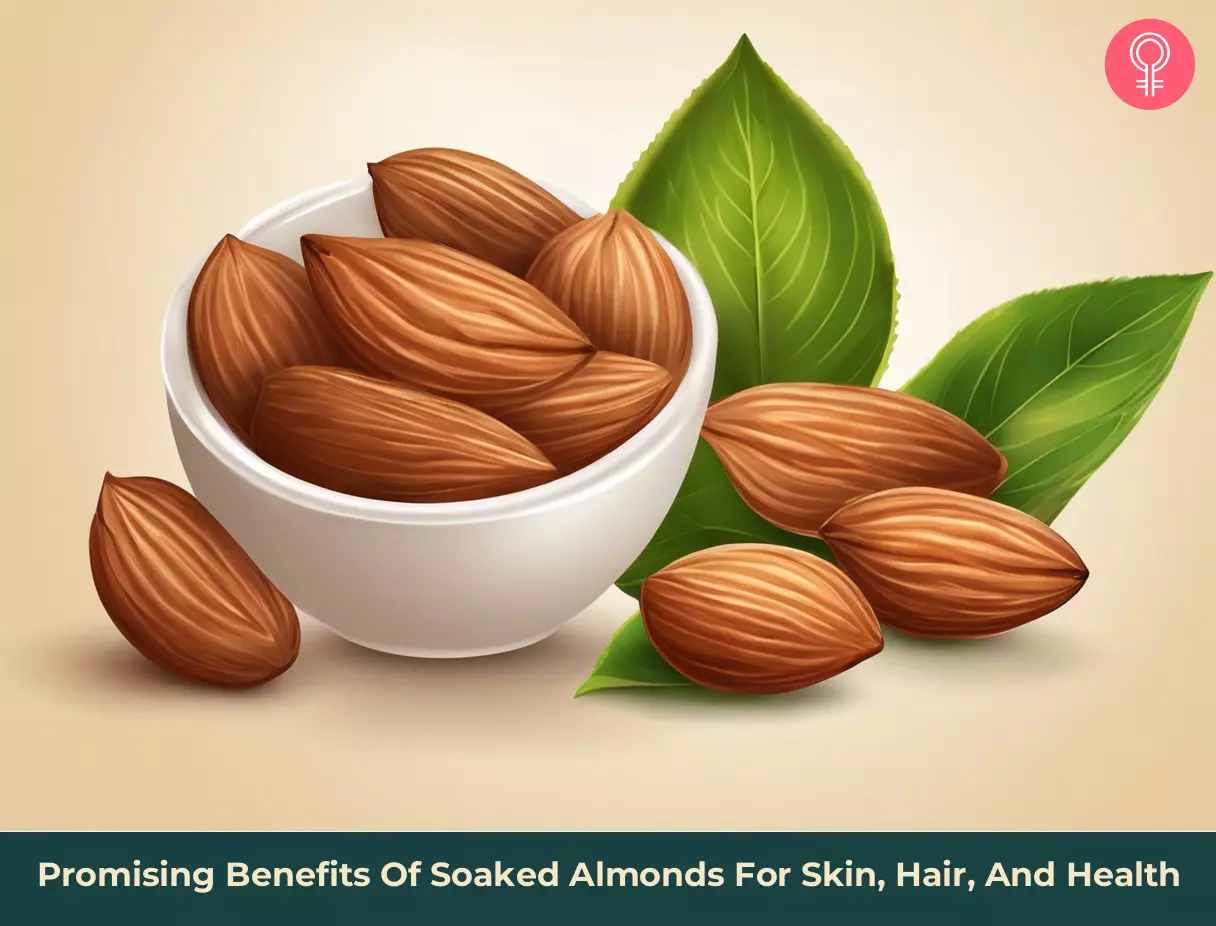
Image: Stable Diffusion/StyleCraze Design Team
Start your day with a healthy boost! Eating soaked almonds every morning on an empty stomach can have amazing benefits for your body. Watch this video to find out what happens!
Personal Experience: Source
StyleCraze's articles are interwoven with authentic personal narratives that provide depth and resonance to our content. Below are the sources of the personal accounts referenced in this article.
i. Here is Why You Should Eat Almonds Every Dayhttps://medium.com/in-fitness-and-in-health/here-is-why-you-should-eat-almonds-every-day-389855a73b9f
References
Articles on StyleCraze are backed by verified information from peer-reviewed and academic research papers, reputed organizations, research institutions, and medical associations to ensure accuracy and relevance. Read our editorial policy to learn more.
- Kong, Fanbin, and R. Paul Singh. “Digestion of Raw and Roasted Almonds in Simulated Gastric Environment.” Food Biophysics vol. 4,4 (2009): 365–377. doi:10.1007/s11483-009-9135-6
https://www.ncbi.nlm.nih.gov/pmc/articles/PMC2854608/ - Gupta, Raj Kishor et al. “Reduction of phytic acid and enhancement of bioavailable micronutrients in food grains.” Journal of food science and technology vol. 52,2 (2015): 676-84. doi:10.1007/s13197-013-0978-y
https://www.ncbi.nlm.nih.gov/pmc/articles/PMC4325021/ - Grundy, Myriam Marie-Louise et al. “A review of the impact of processing on nutrient bioaccessibility and digestion of almonds.” International journal of food science & technology vol. 51,9 (2016): 1937-1946. doi:10.1111/ijfs.13192
https://www.ncbi.nlm.nih.gov/pmc/articles/PMC5003169/ - Lee LY, Mitchell AE. Determination of d-myo-inositol phosphates in ‘activated’ raw almonds using anion-exchange chromatography coupled with tandem mass spectrometry. J Sci Food Agric. 2019;99(1):117–123. doi:10.1002/jsfa.9151
https://pubmed.ncbi.nlm.nih.gov/29808577/ - Grundy, Myriam Marie-Louise et al. “A review of the impact of processing on nutrient bioaccessibility and digestion of almonds.” International journal of food science & technology vol. 51,9 (2016): 1937-1946. doi:10.1111/ijfs.13192
https://www.ncbi.nlm.nih.gov/pmc/articles/PMC5003169/ - Kalita, Soumik, et al. “Almonds and cardiovascular health: A review.”Nutrients 10.4 (2018): 468.
https://www.ncbi.nlm.nih.gov/pmc/articles/PMC5946253/ - Wien, M. A., et al. “Almonds vs complex carbohydrates in a weight reduction program.”International journal of obesity 27.11 (2003): 1365-1372.
https://pubmed.ncbi.nlm.nih.gov/14574348/ - Mattes RD. The energetics of nut consumption. Asia Pac J Clin Nutr. 2008;17 Suppl 1:337–339.
https://pubmed.ncbi.nlm.nih.gov/18296372/ - “Nuts, almonds” FoodData Central, US Department of Agriculture.
https://fdc.nal.usda.gov/fdc-app.html#/food-details/170567/nutrients - Greenberg, James A et al. “Folic Acid supplementation and pregnancy: more than just neural tube defect prevention.” Reviews in obstetrics & gynecology vol. 4,2 (2011): 52-9.
https://www.ncbi.nlm.nih.gov/pmc/articles/PMC3218540/ - Ferreira, Gustavo C, and Mary C McKenna. “L-Carnitine and Acetyl-L-carnitine Roles and Neuroprotection in Developing Brain.” Neurochemical research vol. 42,6 (2017): 1661-1675. doi:10.1007/s11064-017-2288-7
https://www.ncbi.nlm.nih.gov/pmc/articles/PMC5621476/ - Krause, W et al. “Biochemical and neuropsychological effects of elevated plasma phenylalanine in patients with treated phenylketonuria. A model for the study of phenylalanine and brain function in man.” The Journal of clinical investigation vol. 75,1 (1985): 40-8. doi:10.1172/JCI111695
https://www.ncbi.nlm.nih.gov/pmc/articles/PMC423395/ - Browne, Declan et al. “Vitamin E and Alzheimer’s disease: what do we know so far?.” Clinical interventions in aging vol. 14 1303-1317. 18 Jul. 2019, doi:10.2147/CIA.S186760
https://www.ncbi.nlm.nih.gov/pmc/articles/PMC6645610/ - Jannusch, Kai et al. “A Complex Interplay of Vitamin B1 and B6 Metabolism with Cognition, Brain Structure, and Functional Connectivity in Older Adults.” Frontiers in neuroscience vol. 11 596. 27 Oct. 2017, doi:10.3389/fnins.2017.00596
https://www.ncbi.nlm.nih.gov/pmc/articles/PMC5663975/ - Innis SM. Dietary omega 3 fatty acids and the developing brain. Brain Res. 2008;1237:35–43. doi:10.1016/j.brainres.2008.08.078
https://pubmed.ncbi.nlm.nih.gov/18789910/ - Batool Z, Sadir S, Liaquat L, et al. Repeated administration of almonds increases brain acetylcholine levels and enhances memory function in healthy rats while attenuates memory deficits in animal model of amnesia. Brain Res Bull. 2016;120:63–74. doi:10.1016/j.brainresbull.2015.11.001
https://pubmed.ncbi.nlm.nih.gov/26548495 - Bolling, Bradley W et al. “Polyphenol content and antioxidant activity of California almonds depend on cultivar and harvest year.” Food chemistry vol. 122,3 (2010): 819-825. doi:10.1016/j.foodchem.2010.03.068
https://www.ncbi.nlm.nih.gov/pmc/articles/PMC4276397/ - Williamson, G. “The role of polyphenols in modern nutrition.” Nutrition bulletin vol. 42,3 (2017): 226-235. doi:10.1111/nbu.12278
https://www.ncbi.nlm.nih.gov/pmc/articles/PMC5601283/ - Jeon SM, Park YB, Kwon OS, et al. Vitamin E supplementation alters HDL-cholesterol concentration and paraoxonase activity in rabbits fed high-cholesterol diet: comparison with probucol. J Biochem Mol Toxicol. 2005;19(5):336–346. doi:10.1002/jbt.20098
https://pubmed.ncbi.nlm.nih.gov/16292755 - Summanen JO, Vuorela HJ, Hiltunen RK. Does potassium and magnesium supplementation lower the blood pressure of spontaneously hypertensive rats?. J Pharm Sci. 1994;83(2):249–251. doi:10.1002/jps.2600830227
https://pubmed.ncbi.nlm.nih.gov/8169799 - “Office of Dietary Supplements – Riboflavin.” NIH Office of Dietary Supplements, U.S. Department of Health and Human Services, ods.od.nih.gov/factsheets/Riboflavin-HealthProfessional/.
https://ods.od.nih.gov/factsheets/Riboflavin-HealthProfessional/ - WEINER, MICHAEL W. “Effects of sodium and potassium on energy metabolism and sodium transport of toad bladders.”The Journal of Pharmacology and Experiemental Therapeutics (1980).
https://jpet.aspetjournals.org/content/213/2/390.long - Perez, Vanessa, and Ellen T Chang. “Sodium-to-potassium ratio and blood pressure, hypertension, and related factors.” Advances in nutrition (Bethesda, Md.) vol. 5,6 712-41. 14 Nov. 2014, doi:10.3945/an.114.006783
https://www.ncbi.nlm.nih.gov/pmc/articles/PMC4224208/ - Rosique-Esteban, Nuria et al. “Dietary Magnesium and Cardiovascular Disease: A Review with Emphasis in Epidemiological Studies.” Nutrients vol. 10,2 168. 1 Feb. 2018, doi:10.3390/nu10020168
https://www.ncbi.nlm.nih.gov/pmc/articles/PMC5852744/ - Li SC, Liu YH, Liu JF, Chang WH, Chen CM, Chen CY. Almond consumption improved glycemic control and lipid profiles in patients with type 2 diabetes mellitus. Metabolism. 2011;60(4):474–479. doi:10.1016/j.metabol.2010.04.009
https://pubmed.ncbi.nlm.nih.gov/20580779 - Kong, F., Singh, R.P. Digestion of Raw and Roasted Almonds in Simulated Gastric Environment. Food Biophysics 4, 365–377 (2009)
https://link.springer.com/article/10.1007/s11483-009-9135-6 - Schlemmer U, Frølich W, Prieto RM, Grases F. Phytate in foods and significance for humans: food sources, intake, processing, bioavailability, protective role and analysis. Mol Nutr Food Res. 2009;53 Suppl 2:S330–S375. doi:10.1002/mnfr.200900099
https://pubmed.ncbi.nlm.nih.gov/19774556 - Smeriglio, Antonella et al. “Proanthocyanidins and hydrolysable tannins: occurrence, dietary intake and pharmacological effects.” British journal of pharmacology vol. 174,11 (2017): 1244-1262. doi:10.1111/bph.13630
https://www.ncbi.nlm.nih.gov/pmc/articles/PMC5429339/ - Takasaki M, Yanagawa K, Shinozaki K, et al. Nihon Ronen Igakkai Zasshi. 2002;39(5):494–500. doi:10.3143/geriatrics.39.494
https://pubmed.ncbi.nlm.nih.gov/12404740 - Huang WC, Chen CY, Wu SJ. Almond Skin Polyphenol Extract Inhibits Inflammation and Promotes Lipolysis in Differentiated 3T3-L1 Adipocytes. J Med Food. 2017;20(2):103–109. doi:10.1089/jmf.2016.3806
https://pubmed.ncbi.nlm.nih.gov/28146410
Read full bio of Eva De Angelis
Read full bio of Sindhu Koganti
Read full bio of Ravi Teja Tadimalla
Read full bio of Moksha Gandhi





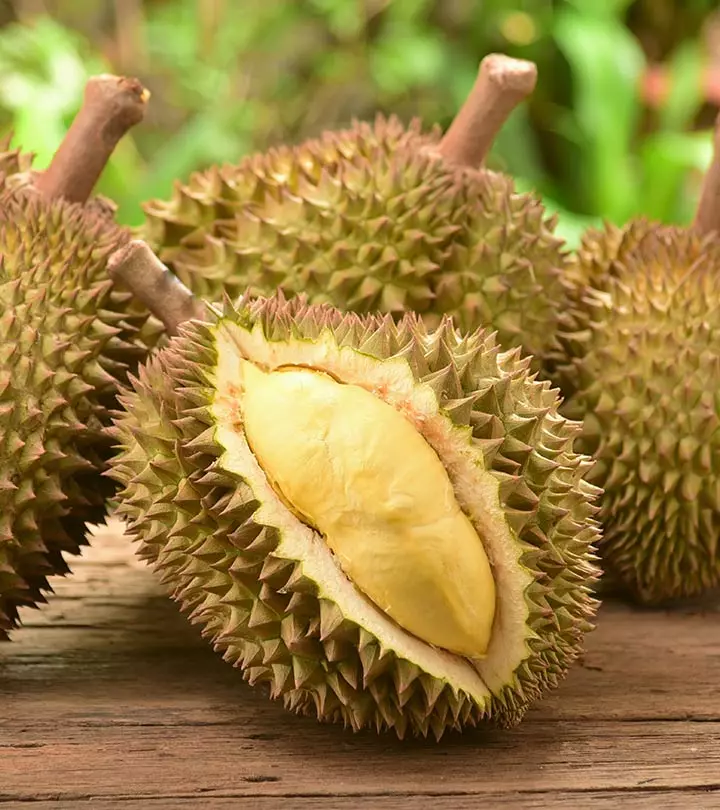
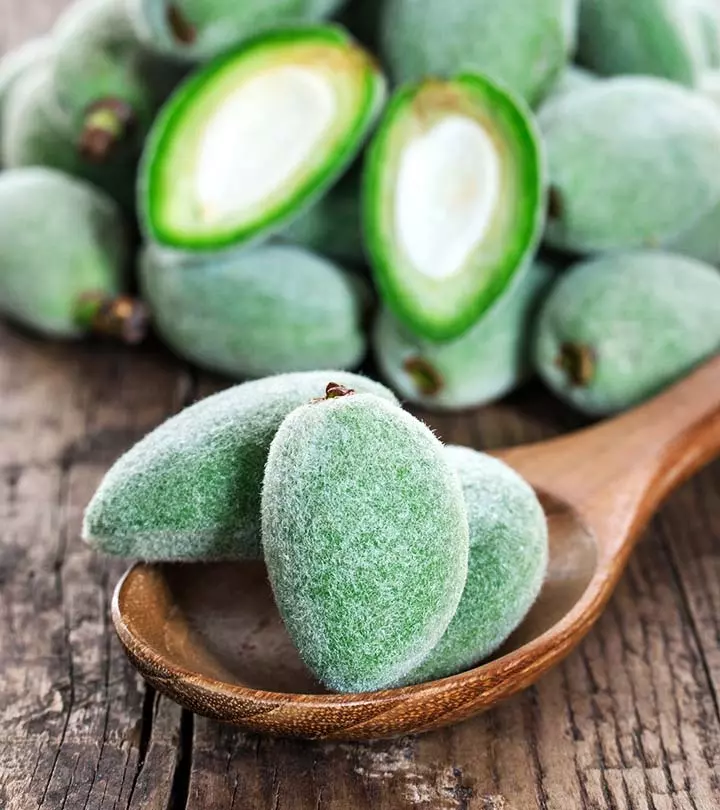
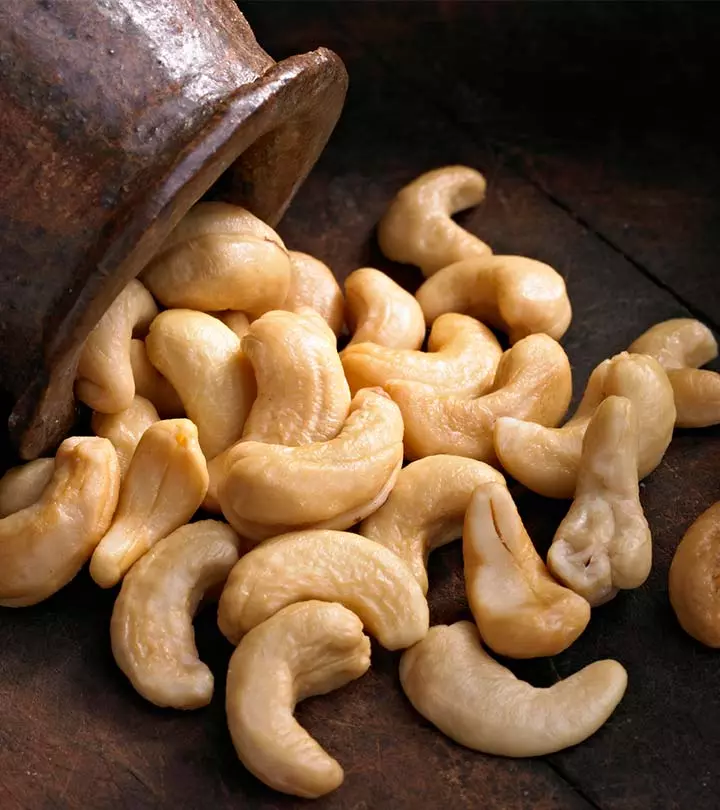



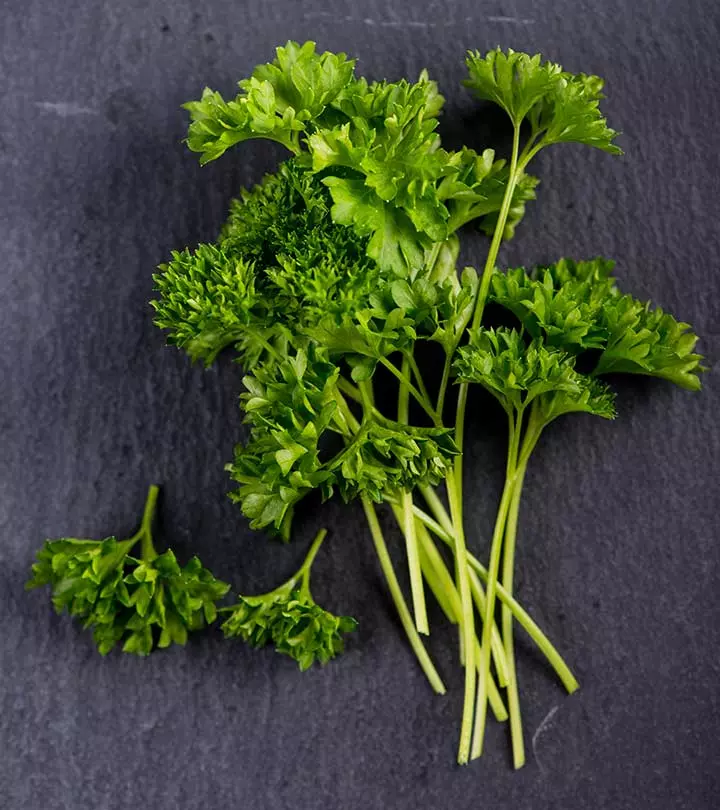


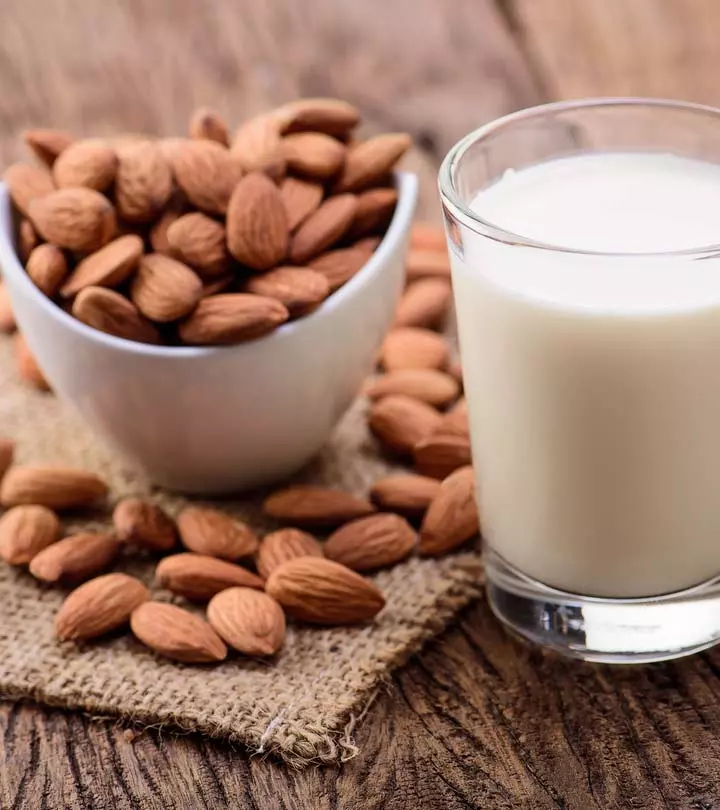
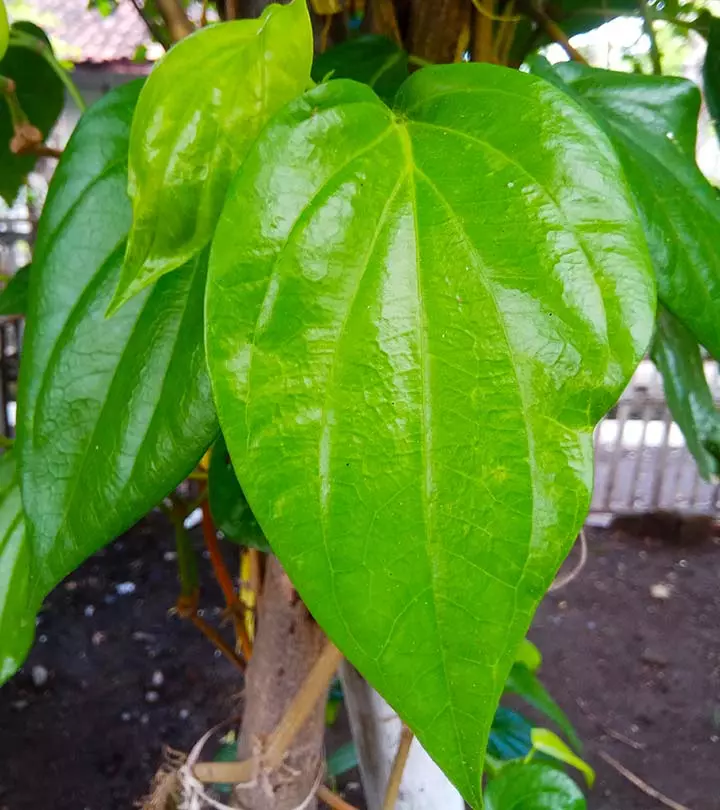
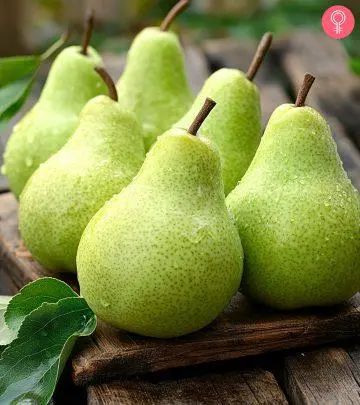
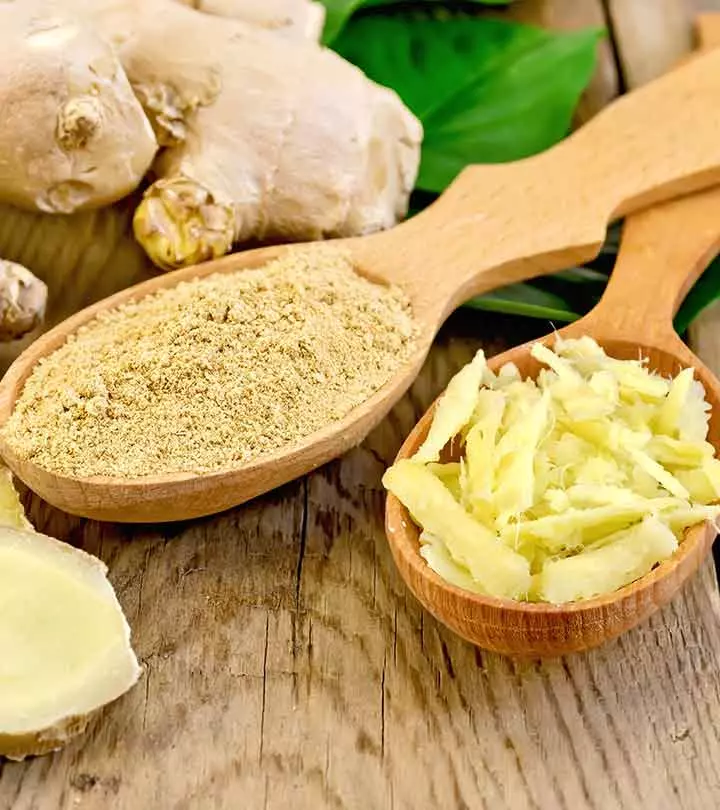




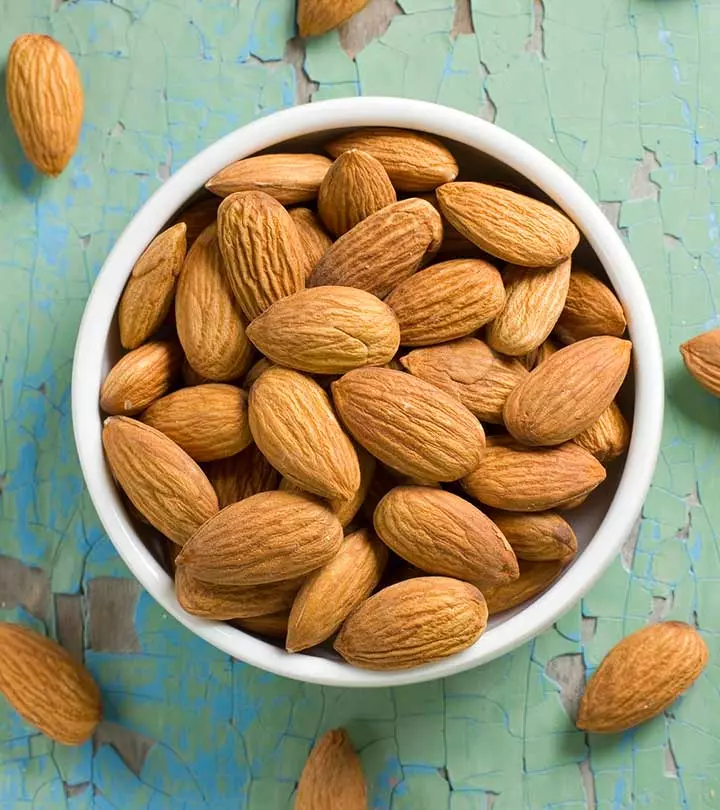
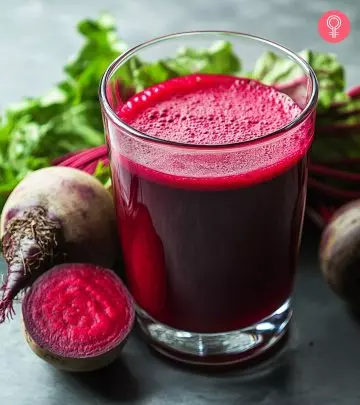


Community Experiences
Join the conversation and become a part of our empowering community! Share your stories, experiences, and insights to connect with other beauty, lifestyle, and health enthusiasts.